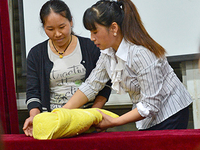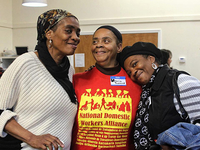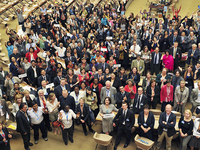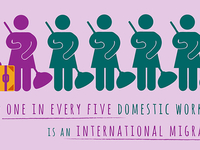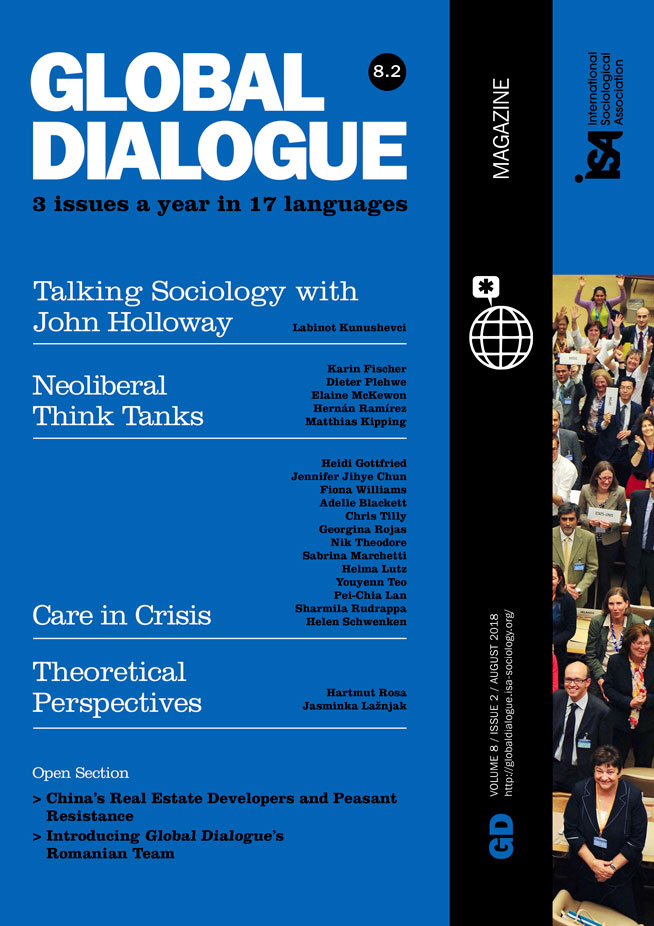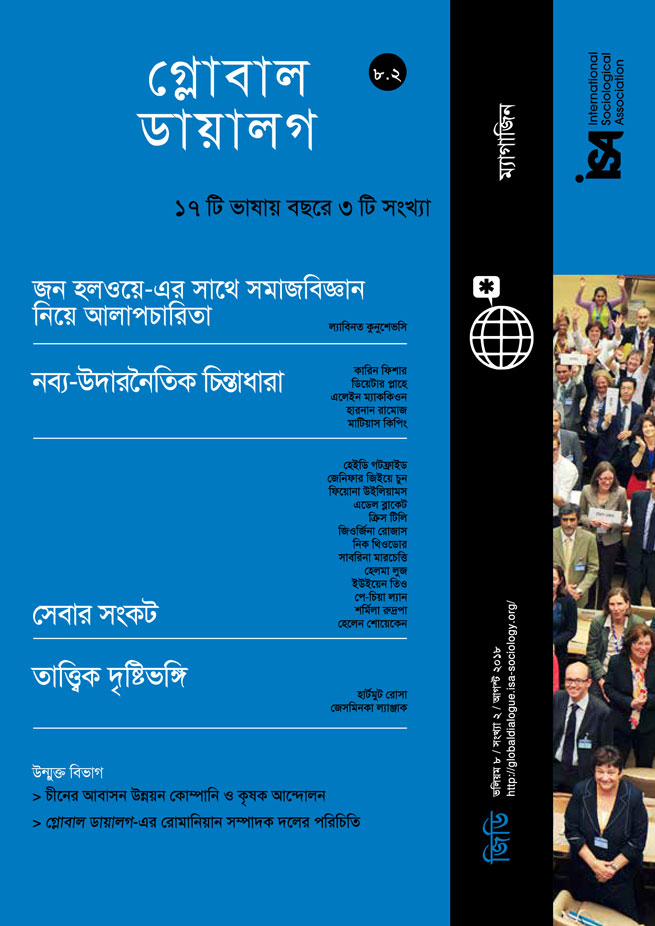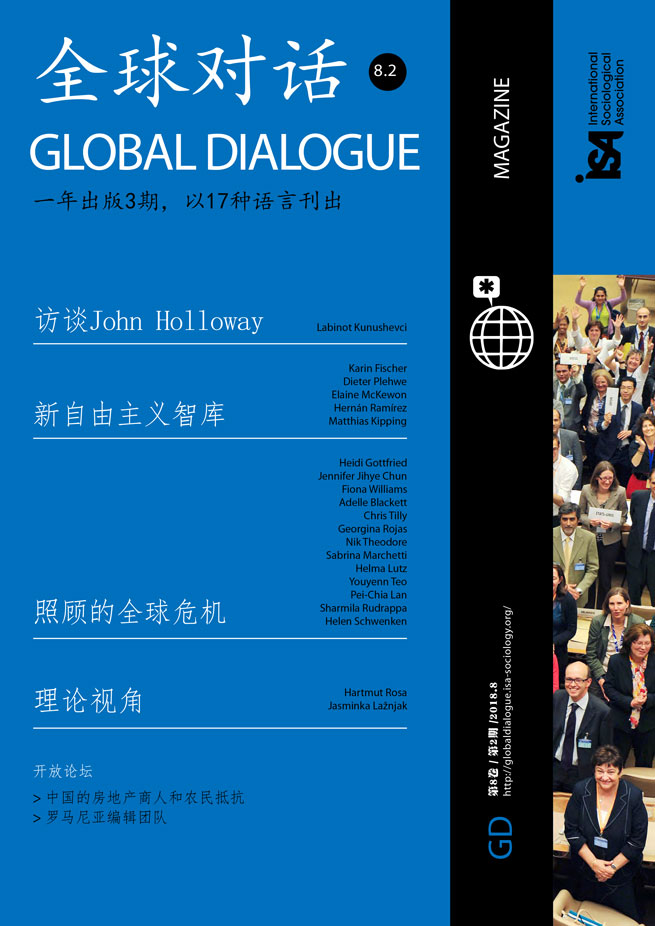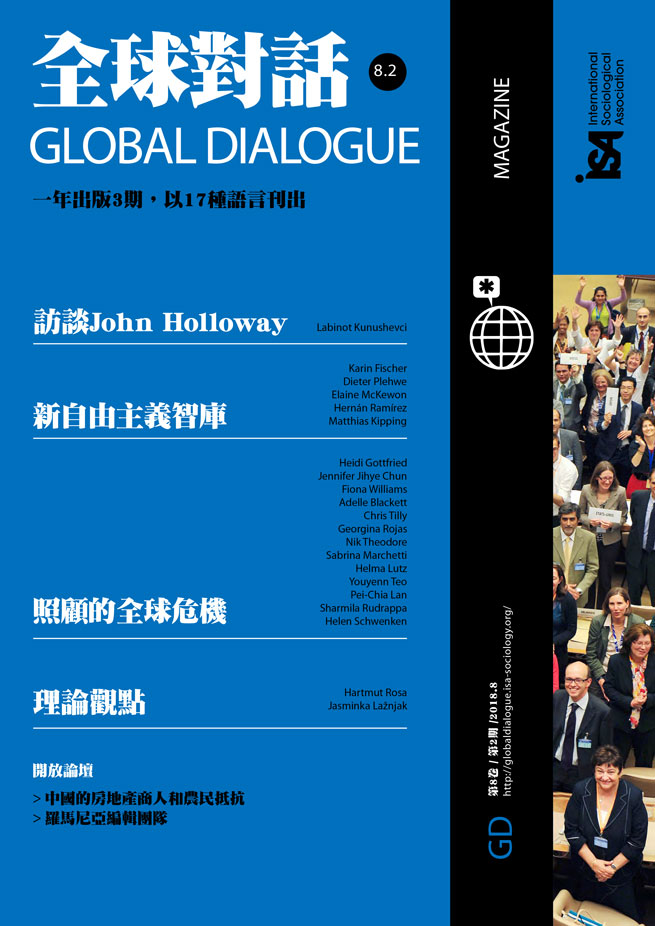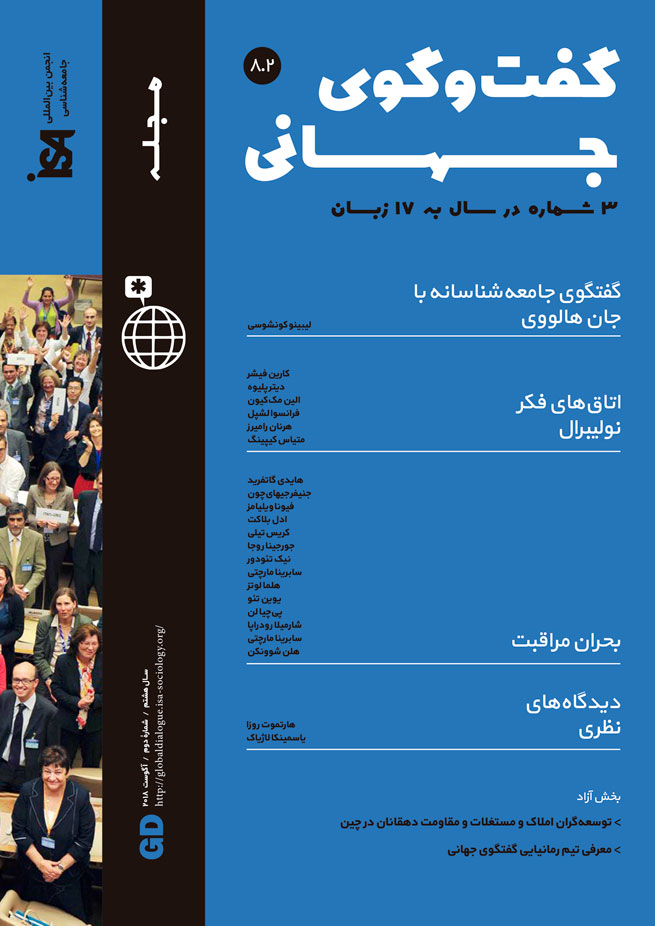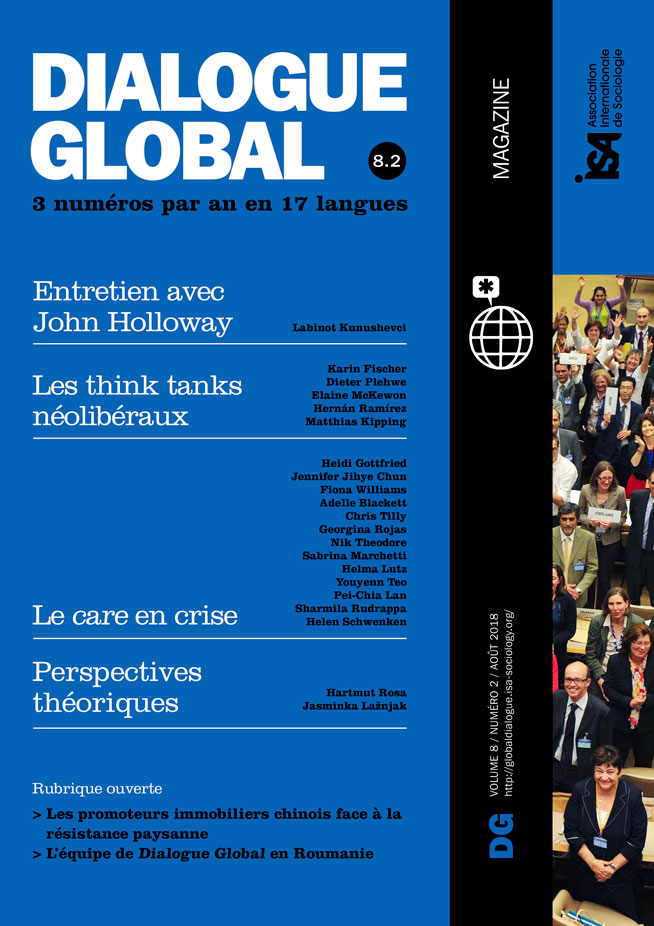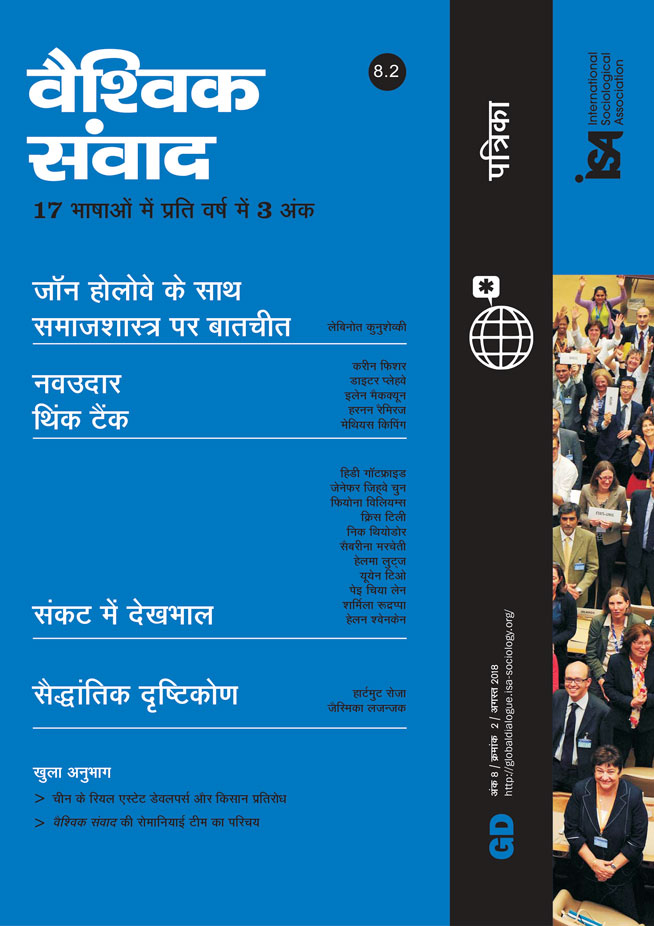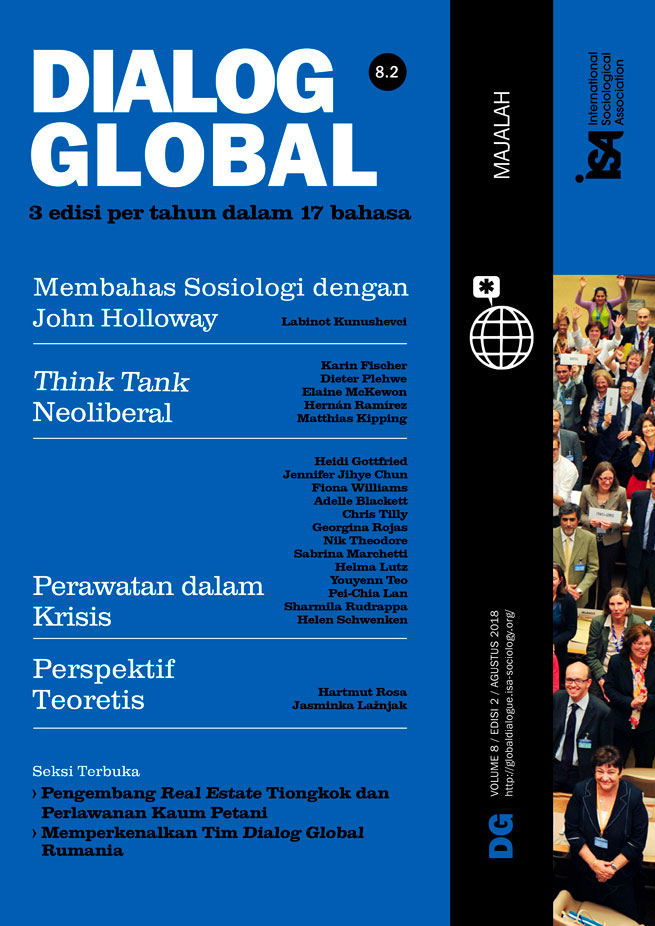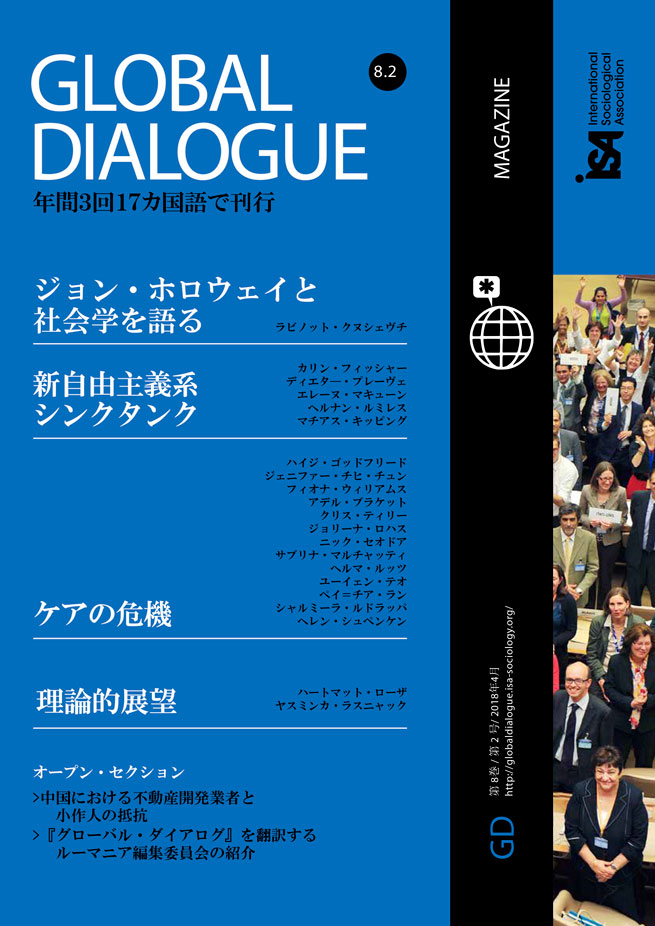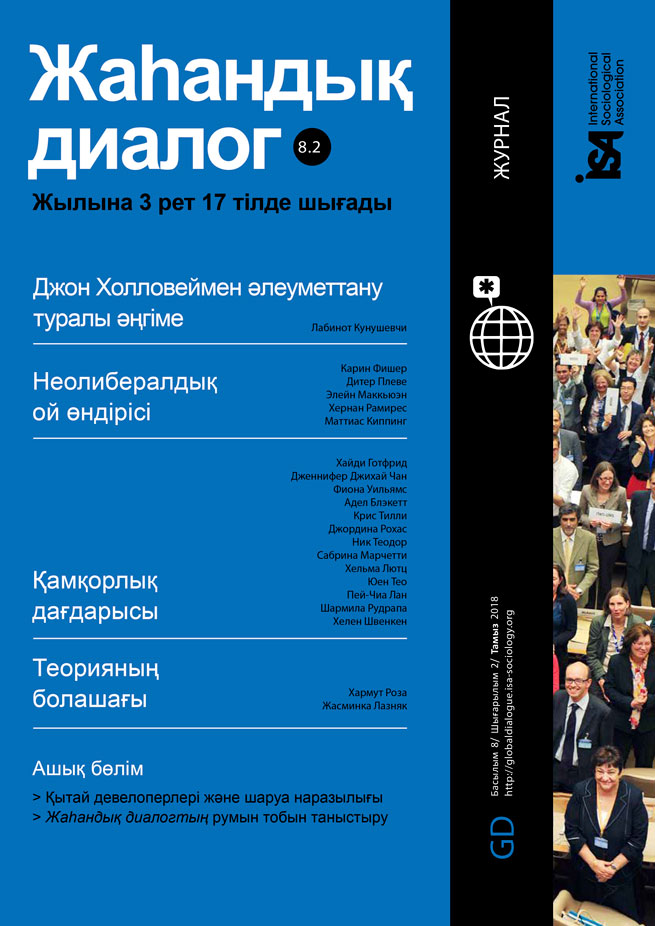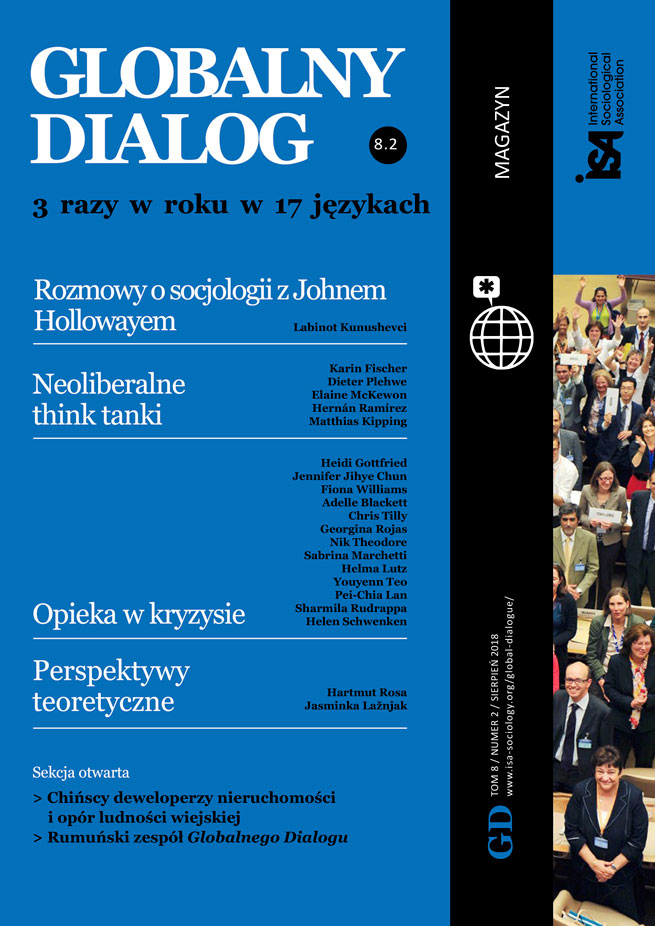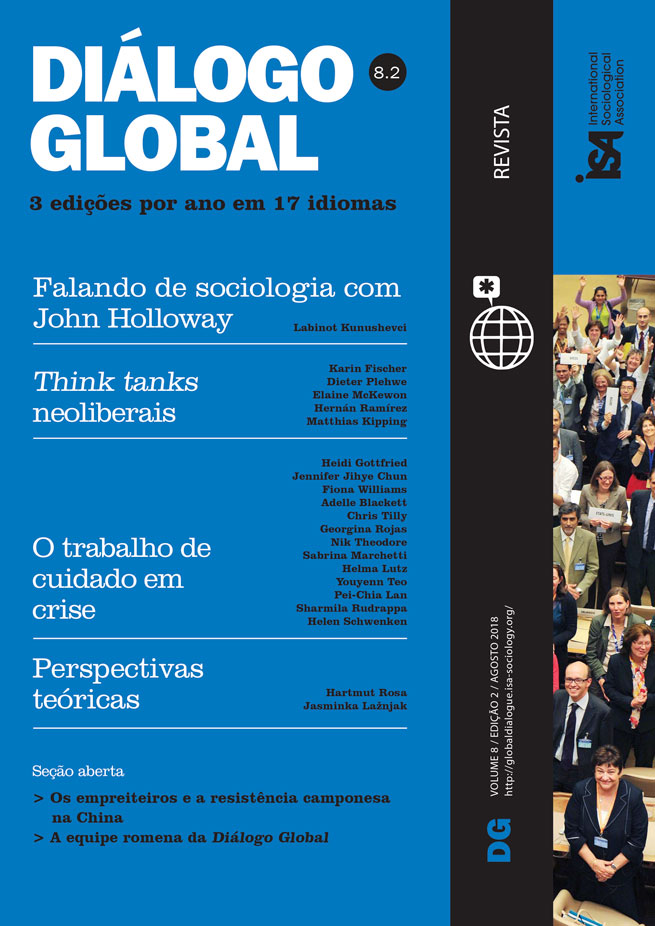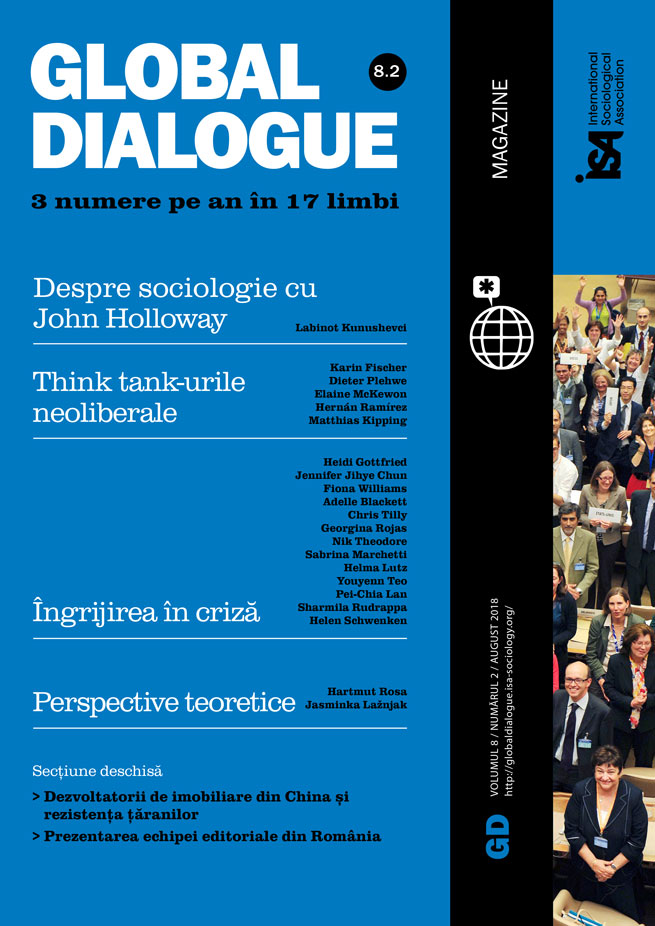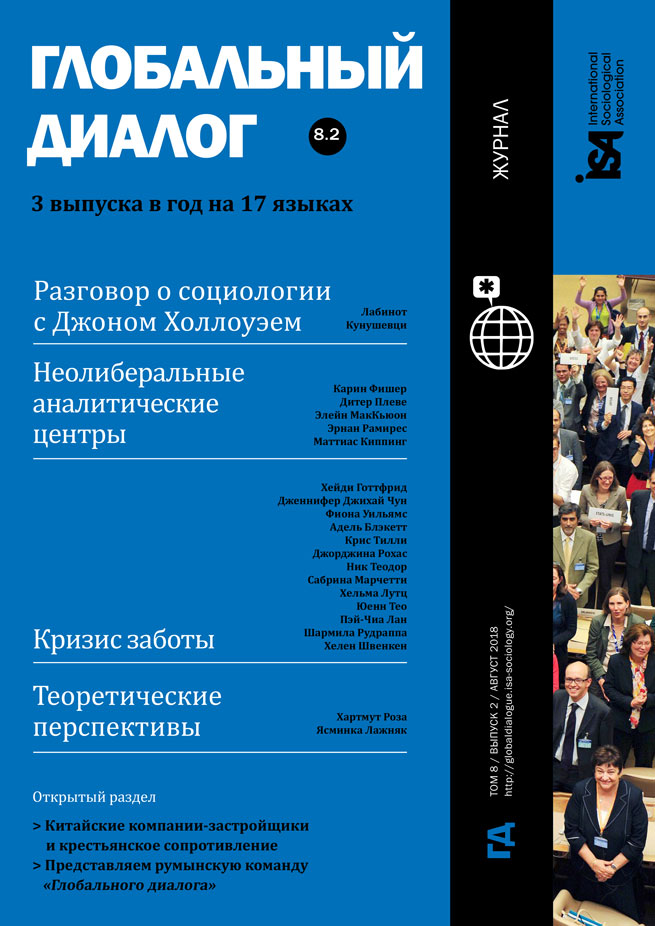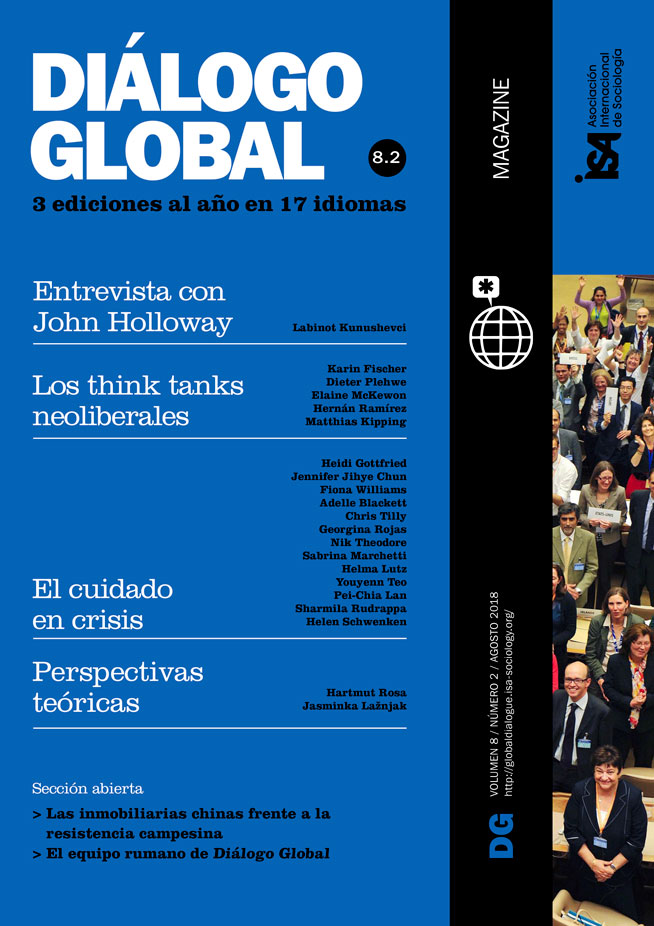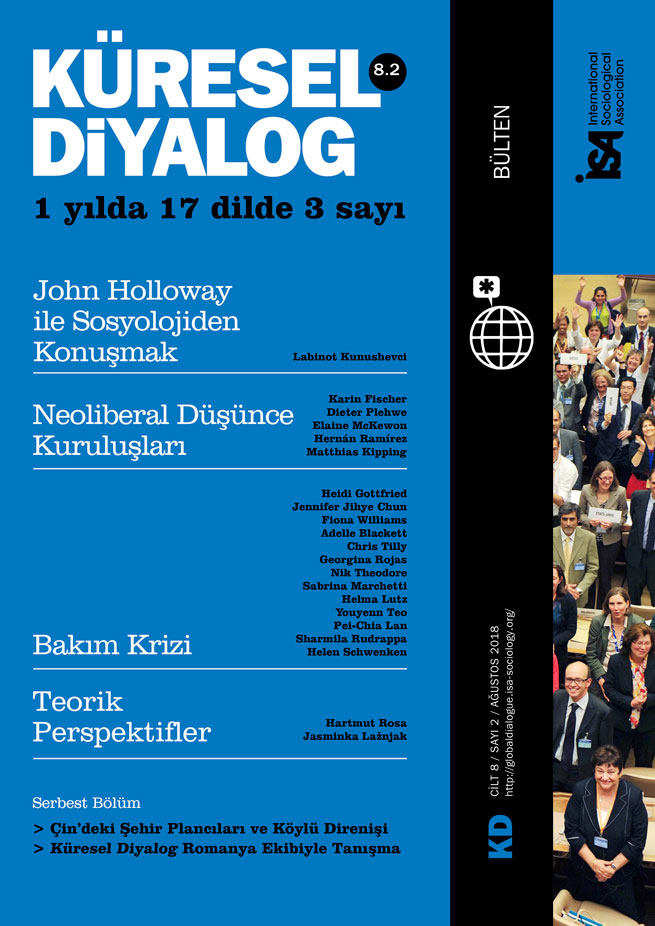The study of care is at the center of contemporary debates about the stakes of social, political, and economic transformations taking place in the world today. An unprecedented number of women swept up in the human flow of crossing borders in search of work reproduces new and existing patterns of inequality along class, gender, racial, and national lines. The “crisis of care” raises concerns about the costs and consequences of a profoundly uneven and unjust neoliberal economy, especially for the predominantly poor, migrant, and racialized women who shoulder the disproportionate responsibility of caring for others. It also points to the preponderance of low-paid, informal jobs to take care of children, the elderly, and private households as well as ideologies of care that mask and often devalue the labor involved in activities ranging from cooking and cleaning to sex, intimacy, and biological reproduction. Our analytic lens, which takes intersectional feminist analysis and the global political economy as crucial starting points, magnifies the often-invisible labor of care and its significance in sustaining everyday life.
Market interventions and transnational circuits of care work have altered social relations and modes of belonging, from the moment of conception to end-of-life experiences. The labor of love confounds how we think about care and conceptualize care as work. Commonsense understandings expect care to be given freely, a labor of love, rewarded in terms of its intrinsic use value rather than compensated either in the “profane” medium of money or in relation to an abstract right of citizenship. While all forms of care and intimate labor have been devalued, one burgeoning area of inquiry is the study of surrogate mothers who have not been accorded social, political, and legal recognition for their labor. Surrogate mothers’ labor is less legible due to the blurring of lines between commodity and gift exchanges. Intended parents can take refuge in the altruistic sentiments of the gift relationship rather than see themselves bound up in impersonal exploitative social relations and the increased commodification of intimacy and reproductive labor.
A diverse set of actors and institutions influence the value of care as socially necessary and integral to everyday life under capitalism. The exclusion of care workers from existing legal protections, whether as temporary migrants and voluntary surrogates or in non-wage labor activities, further devalues care work as a labor of love and devotion. Shifting its policy priorities, the state has withdrawn, retreated, and devolved responsibilities (and risks) for care, but also has pursued reforms fueling the marketization of care and intimate labor. Consider the case of Singapore: the state’s creation of highly marketized and privatized options for meeting care needs through a foreign domestic worker program underscores its role in advantaging middle- and upper-class families over working-class families. The twin processes of marketization and privatization of care are associated with insecure, low-wage jobs for care workers.
Love and care are transferred and transformed along global care chains. Evoking the image of globalized care chains enlarges the canvas on which we can visualize spatial power relationships. Inside the homes of migrant workers, family members left behind negotiate the demands of providing material and emotional forms of labor for their children and households. Evidence from post-socialist countries of Eastern Europe show that the labor of “motherly love” is not equally embraced by lone fathers who construct defensive forms of masculinity that shield them from ridicule and exclusion. Matching workers traveling long distances to care recipients and employers in crossborder transactions often involves multiple intermediaries from private labor brokers to bilateral national agreements. In Japan, expanding government-sponsored care programs for the rapidly-aging population produce an unexpected emphasis on professionally-trained migrants who can engage in cultural “bridgework” to bridge their ethnic “otherness” vis-a-vis Japanese care recipients. Globalized care chains link families from one region to another region of the world economy, and reflect the reorganization of public and private power relationships within and between the family, civil society, state, and economic institutions.
While the totality of such practices conjures up a powerful system of intersectional oppressions, such trends are not without their opponents. In some cases, we see the adaptation of unions and civil society organizations to new organizing and policy challenges; in other cases, we see the development of unexpected yet critical alliances and solidarities in support of care workers and their just treatment. Whether in the confines of private households or in the corridors of government, care workers are actively negotiating and contesting relations of inequality and subordination, sometimes reproducing gendered and ethno-racialized divisions of labor, other times crafting solidaristic identities and subjectivities.
By interpolating a new political subject, the widespread and ever-increasing commodification of care has forged the basis for new forms of collective agency. At the global level, the waging of a long campaign by domestic workers’ organizations and their allies pressured the International Labor Organization (ILO) to adopt the first set of international standards for domestic workers (Convention No. 189) in 2011. After historical exclusion due to the links to domestic slavery, colonial servitude, and master-servant relations, this convention gives domestic workers a common vocabulary and a global platform for claiming rights as workers and leveraging national policies and international legal norms on human rights in their pursuit of improved working conditions and the expansion of “decent work” to domestic workers.
Historical legacies and national political contexts also shape the modes and means available to social movement actors. Domestic workers’ organizing dates back to the turn of the twentieth century, another momentous period of social and economic upheaval. Recent activism in the US and Mexico features innovative social movement strategies drawing on multiple intersecting identities from which to recruit members and allies. In India, the mobilizing frame centers on human rights and fosters international solidarity (rather than regional-level solidarity) to target the national government; whereas in Ecuador, the mobilizing frame centers on equal labor rights and emphasizes regional more than global-level solidarity. By taking advantage of new political opportunity structures, the changing transnational political economy of care has not only influenced the kinds of social actors engaged in regulating care, but has also transformed the political horizons of organizing and collective action.
Heidi Gottfried, Wayne State University, USA, president of ISA Research Committee on Economy and Society (RC02) and member of ISA Research Committees on Labor Movements (RC44) and Women in Society (RC32) <ag0921@wayne.edu>
Jennifer Jihye Chun, University of Toronto, Canada and member of RC02 and RC44 <jj.chun@utoronto.ca>


